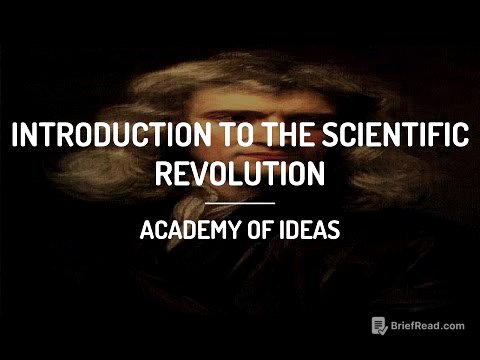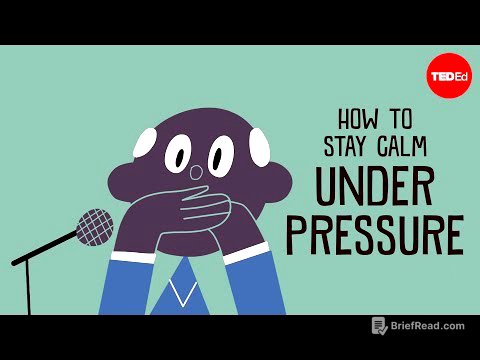TLDR;
Mark Manson discusses seven harsh truths to improve one's life, focusing on trade-offs, cognitive biases, and personal responsibility. He emphasizes that everything in life involves trade-offs, our minds tend to deny these trade-offs, and we often blame others for the costs while taking credit for the benefits. Growth comes from overcoming delusions rather than seeking new information, and all trade-offs involve pain, but bad trade-offs lead to suffering. The more downside one can stomach, the more upside one will enjoy, and there is no such thing as a balanced life; specialization leads to greater fulfillment. Manson draws inspiration from World War II survivors like Freud, Frankl, Sartre, and Young, highlighting their insights into human nature and resilience.
- Everything in life is a trade-off, and we must acknowledge and understand these trade-offs to make better decisions.
- Our minds naturally deny trade-offs, leading to cognitive dissonance and poor choices.
- Blaming others for costs and taking credit for benefits results in entitlement and distorted perceptions of reality.
- Personal growth comes from overcoming delusions and false beliefs rather than constantly seeking new information.
- All trade-offs cause pain, but choosing the right struggles can lead to a more fulfilling life.
- The more downside you can stomach, the more upside you will enjoy, but this often involves giving up parts of your former self.
- There is no such thing as a balanced life; specializing and focusing on what you love leads to greater happiness and purpose.
Introduction [0:00]
Mark Manson introduces his talk on seven harsh truths to improve one's life. He shares his enthusiasm for meeting fans and hearing their stories during his tours. The talk will explore the trade-offs we make in life, blending philosophical insights with humor and personal anecdotes.
Seven Harsh Truths [0:56]
Manson outlines the topics he will cover, including a key mental flaw that leads to bad decisions, why we blame others, an unexpected definition of evil, and the importance of living an unbalanced life. He quotes David Foster Wallace, stating that "The truth will set you free, but only after it's had its way with you," setting the stage for a candid and challenging discussion.
Truth 1: Everything is a Trade-Off [2:50]
Manson begins with the idea that everything in life involves trade-offs, some obvious and mundane, like buying an overpriced coffee, and others abstract and long-term, such as major life decisions. He emphasizes that we often mess up these abstract trade-offs, even though they are the most important decisions we make. To illustrate, he presents a hypothetical scenario of someone abandoning their marriage to live on a beach with a coconut vendor named Rocco, highlighting the benefits (romantic fantasy, beach life, free coconuts) and drawbacks (poverty, estranged children, mosquitoes). He notes that people often overvalue short-term emotions and undervalue long-term commitments, leading to drastic life changes.
Truth 2: Denying Trade-Offs [7:07]
Manson explains that our minds naturally tend to deny the existence of trade-offs, which is where problems begin. He reveals that his career is based on reminding people of the trade-offs they are in denial about. For example, the person you marry is the person you fight with, and the dream job you take is the job you stress over. He likens self-help to mental hygiene, reminding us of what we already know but tend to push below the surface. This denial stems from our primate brains, which struggle to weigh pros and cons simultaneously, leading to emotional overwhelm and black-and-white thinking. Cognitive dissonance, as described by Freud, causes stress, which we alleviate by distorting our perceptions of reality. Black-and-white thinking prevents us from seeing the full picture and can lead to poor decisions, prejudice, and an inability to learn and experience new perspectives. The constant bombardment of information further reduces our cognitive capacity to fight against this type of thinking.
Truth 3: Blaming Others [13:01]
Manson discusses how we tend to blame others for the costs and take credit for the benefits to relieve cognitive dissonance. This is related to the actor-observer bias, where we excuse our own negative actions while harshly judging others for the same actions. This mindset leads to entitlement, the belief that we deserve benefits without incurring costs. Entitlement is not learned but unlearned, as it is our default state as animals. Leaders in society, such as parents and politicians, have a role in training people out of entitlement and helping them consider long-term consequences and their fellow human beings. Manson quotes David Foster Wallace, noting that evil people never believe they are evil but see everyone else as evil, which is the end state of an entitlement mindset.
Truth 4: The Enemy of Growth is Delusion [19:31]
Manson argues that personal growth is a struggle against our own [ __ ]. It's not about learning more information but understanding and overcoming false beliefs and patterns. If we had accurate views of ourselves and the world, motivation and purpose would not be issues, and we would handle relationships better. He advises against setting out to make changes and instead suggests conducting experiments to gather information. The only personal development advice that works is personal, so we must try things, set boundaries, and observe the effects without expectations. This approach reveals the true costs and benefits, removing shame and pressure.
Truth 5: All Trade-Offs Cause Pain [23:35]
Manson explains that all trade-offs cause pain, but bad trade-offs cause suffering. He shares an allegory from the Buddha about two arrows: the first arrow is the initial pain, which is temporary, and the second arrow is the meaning we attach to that pain, which can persist indefinitely. He suggests focusing on the "first arrow" that we secretly enjoy, the struggle that makes us feel alive. This awareness of the costs we are incurring makes us immune to the "second arrow." He uses the example of writing a book, which is hard but also enlivening for him. He contrasts his experience with a musician friend who naturally enjoyed practicing, highlighting that the real cost of being a musician is the practice itself. Finding the struggle that only you can bear becomes your competitive advantage.
Truth 6: Stomaching Downside [29:36]
Manson states that the more downside you can stomach, the more upside you will enjoy. He uses Arnold Schwarzenegger as an example, detailing his intense daily routine of working out, working as a construction worker, and more workouts. The obvious takeaway is that Schwarzenegger's success is due to his ability to endure suffering. However, the unobvious takeaway is that during this period, he had a failing marriage, no friends, barely spoke English, was broke, and had no life. Choosing a new career or moving to a new city involves giving up parts of your former self, leading to a sense of grief. He shares his personal experience of trying to get healthy, realizing that he had to address his lifestyle choices and the role of alcohol and food in his social relationships and anxiety management. He had to lose friendships to lose weight, highlighting the importance of letting go of a past self.
Truth 7: No Balanced Life [35:31]
Manson asserts that there is no such thing as a balanced life because we naturally love certain costs and sacrifices more than others. Specializing in what you enjoy leads to greater returns in happiness, meaning, and purpose. He argues against the conventional wisdom of needing to be balanced and have lots of hobbies and friends. Today, we are exposed to exponentially more cool things than we can ever do, so the challenge is developing the ability to turn down and let go of things that don't make sense to us. You can't excel in every area of life; you have to pick one or two things to go all in on. Refusing to accept trade-offs is a terrible trade-off.
Inspirations: World War II Survivors [37:37]
Manson concludes by discussing some of his heroes and the great thinkers who inspired his ideas, particularly World War II survivors. He highlights Freud, who, after escaping Nazi Austria, wrote about how people are mostly animalistic and that civilization is a tenuous force. He mentions Viktor Frankl, who found that prisoners in Auschwitz who had a reason to survive lived longer. He also discusses Jean-Paul Sartre, who, as a prisoner of war, realized that people are afraid of their own freedom because it comes with the burden of responsibility. Finally, he shares the story of Carl Jung, who, despite being criticized for working with the Nazis, was secretly a spy for the US and UK, delivering medical records of Nazi leaders and participating in plots to undermine Hitler. Jung's quote, "I'm not what happened to me; I'm what I choose to become," is particularly inspiring because he risked everything without losing anything.
![7 Harsh Truths to Unf*ck Your Life [Live Talk from Melbourne]](https://wm-img.halpindev.com/p-briefread_c-10_b-10/urlb/aHR0cDovL2ltZy55b3V0dWJlLmNvbS92aS9kNC12Q1NTSzkzVS9tYXhyZXNkZWZhdWx0LmpwZw==.jpg)








